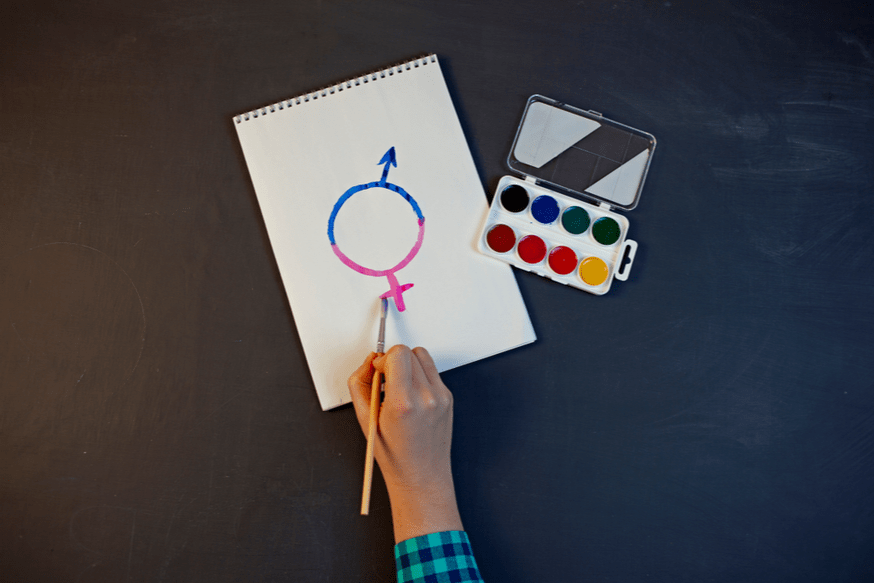
Sexual education

Do you tell a child about the birds and the bees? Or do you tell a story about seed and eggs? When you tell a story like this to your children, do you talk about sexual education? Or do you mainly talk about procreation? Something that’s only part of, or a consequence of, sexuality?
Sexual education
Many parents and teachers struggle with sexual education: what do you say, to whom, when and how? What words do you use and how much information do you give? What many parents and teachers don’t realise is that sexual education starts much earlier than people think. You should start the moment your child is born. In this stage of childhood, the child learns about touching, boundaries, playing and respect. It is taught values and morals. It starts to explore its own body and distinguish different bodies. All of this has nothing to do with the concept of sexuality as adults know it, but they are very important foundations to build on for a good sexual development.
Providing information that’s specifically about sex is a step towards sexual education. Besides the emphasis on autonomy over one’s own body that should always be present, the first sexual education lessons will focus on themes like falling in love and starting relationships. Then the focus shifts towards the biological aspects of sexuality: what is menstruation, a wet dream or an erection? And how does procreation work exactly?
But sexuality is much more than just a physical reaction, the process of menstruating or conceiving a child. Sexuality is about wishes, boundaries, fantasies and desires. It’s about curiosity, insecurity and autonomy. Sexuality is about experiencing your own feelings. How can you, as an adult, explain this without getting caught in your own sexual discomfort when discussing these kinds of subjects? It’s a huge challenge, especially when you’re not completely comfortable with your own sexuality.
Every child learns in his or her own time
It’s important to keep in mind that every child learns things in their own time, including everything that has to do with sexual development. This differs greatly from child to child.
When it comes to sexual education, a good foundation is beneficial for the way they treat their own body and sexuality later in life. Elements like touching, exploring your body, learning it’s okay to say no and showing affection are basic foundations of later sexuality, without attaching a sexual meaning to it in early childhood.
This sometimes makes it difficult for parents: for them it has a sexual meaning, while the child has no idea. So if a 3-year-old child is just ‘feeling’ his penis, the child’s parents may feel really embarrassed, because this is quite inappropriate in their frame of reference as adults. But the child doesn’t know anything beyond the fact that it’s their own body and that it feels good. Don’t punish curiosity and only limit it when it is damaging to the child, and even then, make sure to do it from a place of love and care, not from panic and shame.
Information & discomfort
As a parent, it’s important to let the child know there is a wide array of information available, but that the child has to take the initiative when they are curious about it. So you can explicitly mention a book they can look at or read, or tell them that if they have questions about relationships, changes in the body or are just curious about sexuality, they can come to you for answers.
As a parent, it’s also good to be aware of your own discomfort when it comes to talking about sex in order not to transfer this discomfort to your child. So choose topics or a way of giving information that you feel comfortable with. And look for ways to give your child access to certain information without having to put yourself in an uncomfortable situation when your child asks about certain topics. In that case, it’s best to let them know you’re having a difficult time talking about it, but that it’s important for them to learn about it anyway.
What themes should you discuss?
Themes that are important right now are sexual diversity, being allowed to be curious and setting boundaries, as well as exploring your own wishes. It has to be about autonomy and assertiveness. It can be about fantasies, the use of products and, of course, STDs.
And what could also help, even though the question is to what extent you as a parent can appropriately play a direct role in this: tell your children that there are products they can use, like lubricant or a vibrator. Women experiencing pain during sex for 20 years, only to finally try lubricant and realise they don’t feel pain anymore and can actually enjoy sex now, is something that shouldn’t happen anymore.
But everyone also needs to hear that every person can colour their own sexuality in a way that feels right for them, and that it’s a life-long journey of exploration.
Knowledge is power. This also applies to sex. Yes, the message that you need have safe sex is important, but safe sex is so much more than just using a condom to prevent pregnancy or an STD. Safe sex is a bit like sensible sex: having the good sense to make your own choices about yourself, your wishes, desires and needs, as well as your boundaries. Safe and sensible sex means that you need to have a certain knowledge to make safe, sensible choices, because you know that there is a choice.








Respond or ask a question
0 comments